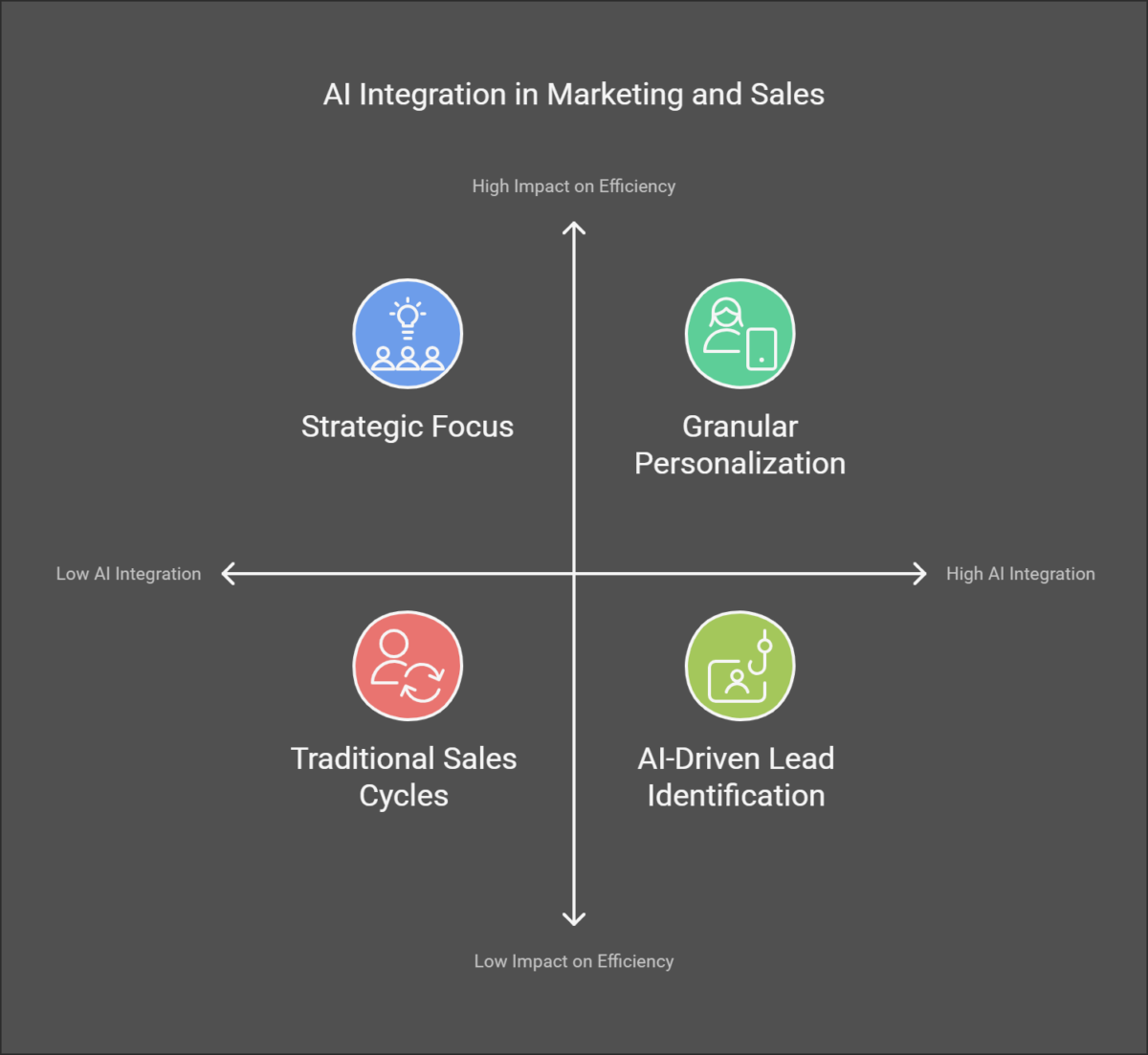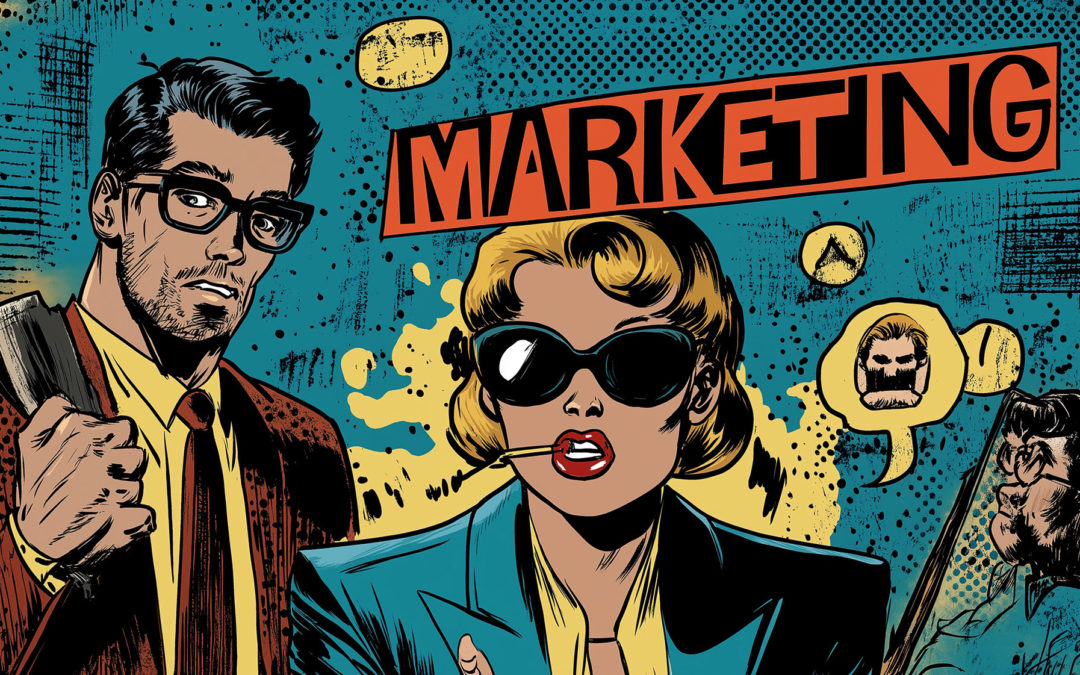Introduction
Artificial intelligence (AI) has transformed digital marketing and sales strategies in recent years, and 2025 is poised to be a defining moment for AI-driven growth. As businesses strive to optimize engagement and revenue, AI is not just a tool—it’s becoming an essential partner in marketing automation, personalization, and predictive analytics.
In this article, we explore the top AI marketing trends for 2025, how businesses can leverage them for scalable growth, and why AI-powered sales strategies will give companies a competitive edge.
Key AI Trends Shaping Marketing in 2025
1. Hyper-Personalization at Scale
📌 AI-powered content customization based on real-time customer behavior.
📌 Dynamic email marketing & website personalization that adapts instantly.
Personalization has evolved beyond simple email segmentation. In 2025, AI will analyze real-time user data to create hyper-personalized content at scale. AI-driven recommendation engines, dynamic website experiences, and automated email marketing campaigns will tailor interactions down to the individual level.
🔹 Example: A B2B company using AI to adjust website content based on visitor industry, past interactions, and CRM data.
💡 How to leverage it:
✅ Implement AI-powered recommendation engines (like Adobe Sensei or Dynamic Yield).
✅ Use predictive analytics to determine the best content, timing, and platform for engagement.
✅ Automate email personalization based on behavioral triggers.
2. AI-Generated Content Will Become Standard
📌 AI will create entire blog posts, ad copy, and video scripts.
📌 Marketers will refine AI-generated drafts instead of starting from scratch.
Generative AI tools like ChatGPT, Jasper, and Copy.ai have already changed content creation. In 2025, we’ll see AI-powered marketing assistants not only generate content but optimize it for SEO, engagement, and conversions.
🔹 Example: AI platforms that analyze top-performing content in an industry and generate an optimized blog post within minutes.
💡 How to leverage it:
✅ Use AI to ideate and draft content (not replace human creativity).
✅ Combine AI-generated drafts with human editing for brand consistency.
✅ Leverage AI-powered video tools (like Synthesia) for quick video creation.
3. AI-Powered Marketing Automation for Smarter Campaigns
📌 AI will automate multi-channel marketing campaigns.
📌 Predictive AI will forecast customer behavior and optimize spending.
Marketing automation is no longer just about email sequences. AI will run entire campaigns, testing different audience segments, optimizing budget allocation, and predicting conversion rates.
🔹 Example: AI-driven paid media campaigns that automatically adjust ad spend, audience targeting, and messaging based on real-time performance data.
💡 How to leverage it:
✅ Integrate AI marketing automation tools (like HubSpot, Marketo, or Drift).
✅ Use AI-powered chatbots to qualify leads and automate responses.
✅ Implement AI-driven ad optimization for PPC campaigns.
4. AI for Predictive Sales & Lead Scoring
📌 AI will analyze historical sales data to predict high-value leads.
📌 Sales teams will prioritize prospects most likely to convert.
AI is revolutionizing sales forecasting by analyzing patterns in customer behavior. Predictive AI tools can identify which leads are most likely to convert, allowing sales teams to focus on high-intent buyers rather than wasting time on unqualified leads.
🔹 Example: AI-powered CRMs that score leads based on engagement, company size, and buying signals.
💡 How to leverage it:
✅ Use AI-driven lead scoring systems (like Salesforce Einstein or Freshsales AI).
✅ Automate follow-ups and reminders for high-priority leads.
✅ Implement AI to detect patterns in sales objections and optimize pitches.
5. AI & Conversational Marketing Will Redefine Customer Engagement
📌 AI chatbots will handle 80% of customer interactions.
📌 AI will automate real-time conversations across multiple platforms.
AI-driven chatbots and virtual assistants are no longer basic autoresponders. In 2025, AI-powered conversational marketing will enable brands to engage customers with personalized, real-time responses across multiple platforms (web, social, WhatsApp, email).
🔹 Example: AI-powered chatbots that qualify leads, recommend products, and book sales meetings—all without human intervention.
💡 How to leverage it:
✅ Deploy AI chatbots for website, social media, and email automation.
✅ Use voice AI assistants to automate support calls and FAQs.
✅ Train AI to deliver contextual, human-like interactions.
What These Trends Mean for Marketers in 2025
✅ Marketing teams will focus more on strategy & creativity, while AI handles execution.
✅ Sales cycles will shorten as AI identifies high-intent leads faster.
✅ Personalization will become more granular, driven by AI-driven insights.
✅ Brands that integrate AI-driven marketing automation will gain a competitive advantage.

How to Get Started with AI in Marketing & Sales
🚀 Step 1: Audit Your Current Marketing Stack
✔ Identify gaps where AI could improve personalization, automation, or lead management.
🚀 Step 2: Invest in AI-Powered Tools
✔ Choose AI-driven CRMs, email marketing automation, and predictive analytics tools.
🚀 Step 3: Test & Optimize AI Campaigns
✔ Start with AI-powered A/B testing to see what resonates with your audience.
🚀 Step 4: Train Your Team
✔ Ensure your sales and marketing teams understand AI insights and can act on them.
Final Thoughts
The marketing and sales landscape in 2025 will be AI-first, data-driven, and hyper-personalized. Businesses that adapt to AI-powered personalization, automation, and predictive analytics will see faster growth, increased engagement, and improved revenue outcomes.
Next Steps
🔹 Want to implement AI in your marketing strategy? Let’s talk—contact us today for a personalized consultation.
📌 Key Takeaways:
✔ AI is transforming marketing & sales with hyper-personalization and automation.
✔ Predictive AI will optimize lead scoring, sales conversion, and customer interactions.
✔ AI-generated content will become a core part of content marketing strategies.
✔ Conversational AI will redefine customer engagement across multiple platforms.
✔ Companies that embrace AI will gain a significant competitive advantage in 2025.

